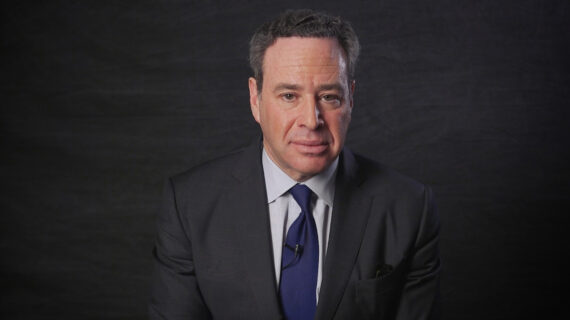Debate is a lost art. It’s not that people don’t argue, of course. Producers still design pundit panels for maximum disagreement, social media platforms still encourage rage-fueled comments and replies, and politicians are still expected to walk onstage with their opponents and talk policy when elections roll around. But to call any of those dynamics debate is to misunderstand the concept.
Those fortunate enough to have been taught debate (an increasing rarity, it would seem) know the first thing you learn is that you can’t be a strong debater unless you can make the argument you yourself are less inclined to agree with. Strong debating skills necessitate a kind of empathy, an ability to move your mind back and forth between alternatives, thinking through the strong arguments for each, something totally absent from public conversations today. As Generation Z graduated from university, gaining power and share of voice in Canadian society, their fragility caused our collective compassion and critical thinking skills to atrophy. Now, post-pandemic, the mainstream Left rejects debate altogether. The only way to reverse this trend is to try to fix things for the next generation. Bring back debate club.
Our culture’s hostility to real debate might feel like it’s been around for quite some time. But prior to 2020, Canada’s burgeoning illiberal Left mostly limited its debate-stifling to university campuses. Controversial campus clubs had their status revoked, and controversial speakers had their talks cancelled. The frustration of feeling not like you’d lost the point on the merits of your argument, but that you hadn’t had the opportunity to argue your point at all was mostly limited to universities. Campus cancel culture itself is a relatively recent phenomenon. As a middle-millennial undergraduate, my conservative views were certainly not embraced at the University of King’s College, but I, like most conservatives in liberal settings, got to play the role of the delightfully ill-informed minority, a curious oddity game to field aggressive questions at the campus pub about how I could possibly sleep at night. It was hundreds against one, but it was still a debate!
It was shortly after I graduated in 2011 that things changed. Greg Lukianoff and Jonathan Haidt’s Coddling of the American Mind charts, with compelling data, how debate was banished from campus, almost overnight. How a new generation of kids raised on social media and helicopter parenting changed the terms of engagement. How conservatives (students, faculty, and great thinkers long dead) went from representing a minority view worthy of some standing to being unwelcome, exorcised not only from campus conversation but from classrooms and curricula. As campus was changing, other major institutions still had a few more years before the Zoomers came knocking, particularly in Canada where culture wars take longer to percolate. It’s not that leftist arguments weren’t increasingly dominating major institutions like Parliament and the mainstream media, it’s that those environments maintained a façade of diversity of thought and at least paid lip service to balance.
But by the mid-2010s, bad faith cancel culture was creeping into other forums. Conservatives who used to get invited to dinner parties to be the token or the foil found their invitations were lost in the mail. At boardroom tables and in newsrooms, they learned to keep their opinions to themselves. Though the media and the corporate world paid lip service to viewpoint diversity, increasingly, there was no more room for debate. Then the pandemic hit, we locked down, and spent too much time online. As the world came back to life, it became clear the propensity of the Canadian Left to reject debate had hardened. Ironically it was Gen Xer Justin Trudeau, a prime minister who along with his senior advisor social circle once considered debate club a formative experience, who really killed debate in Canada. As protestors descended on Ottawa, the prime minister lashed out not at their argument but at their right to make it. He called the protestors who opposed vaccine mandates a “fringe minority”, dismissing their “unacceptable” views, and rejecting even a gesture at empathy.

Today, for prominent left-wing voices, important issues quite literally should not be up for debate, and some conservative politicians have even accepted this premise. In practice, this means that debates about matters of great importance to Canadians—health-care delivery, crime, gender identity, immigration, and literal life and death—have been largely taken off the table.
Fortunately, Conservative Party leader Pierre Poilievre sees righteousness in conservative principles and a political opportunity in the silent majority. Unlike his predecessor, he doesn’t accept that certain issues aren’t up for debate. Instead of trying to avoid the debate on guns, Poilievre has leaned into a tough-on-crime agenda. Instead of trying to avoid tackling drug addiction, Poilievre has argued treatment is more compassionate than the so-called safe supply. And instead of giving up universities to illiberal youth, Poilievre is proposing protecting free speech on campus.
Conservatives aren’t immune to today’s tendency to summarily dismiss their opponents, impugning motives and arguing in bad faith, particularly when fueled by the positive reinforcement of social media feedback. But while we have yet to see him on the debate stage, it’s safe to assume Poilievre will prepare as the best debaters do, by steel-manning his opponents’ arguments, not rejecting them out of hand.
Poilievre isn’t the only figure in Canada willing to hash things out. The Munk Debates continue to draw crowds, and new media ventures like this one make a deliberate attempt at reviving the lost art of argument. If you escape elite urban institutions for regular Canadian life, you can find barber shops, nail salons, church basements, and coffee shops where people still shoot the breeze, not worried about getting kicked out, comfortable in the fact that people around them will try to understand where they’re coming from. Unfortunately, while some deep corners of Canada’s education system are still endeavouring to teach critical thinking, most schools across Canada seem perfectly content to succumb to the homogenizing effect of today’s culture, letting down the next generation in the process.
So if all of this concerns you, I’m going to propose one modest way you can do your part to reverse the trend: Start a debate club.




